SEO for Insurance Agency Websites
Optimizing Website Structure, Content, and Credibility Indicators
Read Time
15 minutes
Designed To
Get Found, Sell More
SEO for insurance agency websites can be easy.
It’s no surprise that most of us visit Google to find what we need. The same is true for your prospects, clients, and referral partners. So if you’re like most insurance agencies, you want to show up when people are searching for insurance!
This article covers what search engine optimization (SEO) is, how it works, and what you can do to improve your chances of showing up at the top of the search results.
The table of contents.
Here’s what we’ll cover throughout this resource on SEO for insurance agency websites.
- Search engines 101.
- What is SEO and how important is it for my insurance agency?
- Your ActiveAgency website sets the foundation for great SEO.
- Being proactive and taking the optional next steps with your insurance agency website’s SEO.
- Using Google Analytics to gauge SEO performance.
- Insurance agency SEO takes a little work, consistency, and patience.
Search engines 101.
In the United States, the three most popular search engines are Google, Bing, and Yahoo. Google leads the pack by a tremendous margin, with around 86% of searches. As a result, most SEO efforts tend to be focused on Google’s standards and suggestions for improving website rankings. But, if you’re doing well on Google, you’re likely doing well on the other search engines too.
Also, keep in mind that more and more searches are conducted on mobile devices. Google and other search engines realize this and prioritize local results above others. And if you think about it, that makes sense. If someone is searching for pizza, Google will show them pizza places near them. The same is true for insurance and other topics. So as you’ll see below, it’s important to let Google know where you’re located and that you’re a trusted, credible source of information.
What is SEO and how important is it for my insurance agency?
Broadly speaking, SEO is the ongoing and consistent practice of doing things to improve where your website shows up in the search results. Google, for example, uses more than 200 factors to calculate their search rankings! Some are directly related to your website, but many are not.
Great SEO takes strategy and consistency.
It’s also important to realize that SEO does not have an on/off switch and it doesn’t happen overnight. The truth is that effective SEO takes consistency and patience. Think of SEO like going to the gym. It doesn’t matter how hard you work out that first day, you’re not going to lose weight or get fit by the end of the session. But if you keep going and keep putting in the effort, eventually the hard work will pay off. Set your expectations accordingly and don’t give up too soon. SEO experts say it can take anywhere from six to twelve months to see positive results.
SEO takes time to build. Expect 6-12 months.
But here’s the good news. Most insurance agencies aren’t doing much in terms of proactive SEO, and that likely includes your competitors. So there’s your opportunity!
And before we go any further, keep in mind that SEO may or may not be an important part of your agency’s digital marketing strategy. Simply put, some areas are more difficult to attract through search than others.
For example, if your target audience is spread across the country or in a large geographic area, it’s tougher. There’s more competition and Google will likely reward local insurance agencies over yours. Some people are also just harder to capture via a Google search, such as high net worth individuals.
SEO may or may not be an important part of your agency’s success.
Your ActiveAgency website sets the foundation for great SEO.
ActiveAgency is built from the ground up using Google’s best practices for SEO. If you’re using ActiveAgency, you already have a lot of powerful, fundamental SEO features and tools built in. They’re hard at work without you needing to do a thing.
200+ pages of SEO-focused content.
Content in general is the cornerstone of SEO. Each page included on your ActiveAgency website uses the necessary keywords, properly formatted titles, and code structure that Google is looking for. The pages are strategically connected to one another via the menus, buttons, and links within the content.
Breadcrumbs.
Remember the fairy tale Hansel and Gretel? In it, Hansel drops a trail of breadcrumbs so the children can find their way back home. Website breadcrumbs help site visitors know where they are on your site. Typically, they’ll look like this: Home > Personal Insurance > Home Insurance. Google loves them because they make site navigation more clear. And when they appear in search results, users are more likely to click into that result.
Location-specific page titles and descriptions.
As mentioned above, Google and other search engines tend to prioritize local businesses. That’s why we customize the titles and descriptions throughout your website so that Google knows where you and your target audience are located.
Location pages with schema.
Your website includes a page for each of your physical office locations and those pages have a superpower called schema. Schema is special text hidden within the code. It tells Google exactly where your insurance agency is located, further helping SEO for local searches.
Code structure optimization.
The underlying HTML, CSS, and other code is all created with SEO in mind. The goal is high quality and efficiency, giving the visitor a better website experience.
Image compression and optimization.
Google and other search engines like websites that load fast. That’s why we compress and optimize images across your site using a variety of proven algorithms, tools, and optimization services.
Redirects from old website pages.
When launching your new ActiveAgency website, we redirect any old pages from your previous website so that Google knows where to find the new content.
XML sitemaps.
Sitemaps act as an index or table of contents of all the pages on your ActiveAgency website. This helps search engines find and index (crawl) all of your content.
Accelerated Mobile Pages (AMP).
Created by Google, ActiveAgency includes the option to enable AMP, which greatly improves mobile speed. Because Google prioritizes the mobile experience over desktop, AMP can boost SEO results. However, AMP disables some features and functionality, so it may not be suitable for every agency. To address this, AMP is an opt-in feature.
5-star agency review form.
Consistently getting 5-star reviews on Google and other review sites shows Google and prospects that your insurance agency is credible and trustworthy. ActiveAgency includes a proven form and process to help your agency collect 5-star reviews.
Ongoing SEO review and adjustments.
Just like everything else, SEO is always changing. We stay up to date on the latest trends and guidelines and regularly make adjustments to ActiveAgency. We’re also happy to discuss where and how we can best help you with SEO.
Being proactive and taking the optional next steps with your insurance agency website’s SEO.
Generally speaking, there are three buckets to consider when thinking about proactive SEO for your insurance agency.
- Site structure and core content.
- Ongoing location-based content.
- Credibility indicators such as reviews, backlinks, social media activity, domain name registration length, years in business, and others.
Next steps with SEO: Structure, Content, Credibility.
Let’s take a look at each of these now.
Site structure and core content.
As mentioned above, ActiveAgency gives you a great jumpstart on both site structure and core content. Most agencies stop there and do quite well. However, if you want to take your SEO even further, begin with the content you already have on your website.
- Look through your existing website content and identify where you’d like to focus your SEO efforts. You can choose products or services that you think have the greatest opportunity (and the least competition) or ones that are your most popular.
- Expand or rewrite the content on each of those pages so that it’s 100% unique to your agency. Provide as much detail as possible. It’s fine if the page gets long. Answer common questions, showcase your expertise, and link to other pages throughout your website. For bonus points, record a video showing people that you’re a friendly, approachable agency that they can trust doing business with.
- If some of the content you’d like to share doesn’t make sense for the existing pages, use the blog. Write articles talking about the topics you identified above. For example, you could answer common questions you hear (one question per blog post). Think about the question someone might type into Google, then make sure that’s the title of the blog post and the topic is covered in the actual content as well.
Using keywords in your content is an important part of SEO strategy. Think of keywords as what people will type into a search engine to find your content. They can be single words or short phrases, also called long-tail keywords. Long-tail keywords can more narrowly define your subject matter to reach your target audience. For example, you may think your keyword is “insurance,” but you’re probably not going to rank well with such a broad term. However, “home insurance in Bethlehem, PA” or “multifamily housing insurance” are more likely to get the right eyes on your site.
You’re the insurance expert, so it’s best to write the content yourself. However, you can use content creation services like Scripted, ContentFly, The HOTH, or Upwork.
Ongoing location-based content.
Adding new content to your website is another important part of SEO for a number of reasons. The more information you have on a subject, the more likely you are to be viewed as an expert. Not only that, but adding content keeps the search engine indexing mechanisms coming back to your site, and maintaining relevance helps your site rank better.
One way to effectively create ongoing location-based content is to explore the topics you are asked about most often. For instance, if you focus on home insurance, you can write blogs such as Top 5 Questions About Home Insurance in Bethlehem, PA, or Common Home Insurance Concerns in Bethlehem, PA. You can also provide house-related information such as tips for getting your home ready for an upcoming season. To maximize the effectiveness of these articles, be sure to include your keywords and location with links to the appropriate location pages.
Another tactic is to add content to your special location pages (with schema, see above) that incorporates your specialties. Location pages can be expanded to include information about your niche markets and include links to your product pages, as well as the other content you create. In other words, as you build out more content, be sure to link it to other content you have on your site.
Credibility indicators such as reviews, backlinks, social media activity, domain name registration length, years in business, and others.
Increasing your credibility is another important step to better SEO. The more you can prove yourself as the expert and show that others agree, the better. While some aspects are out of your control, there are many you have influence over.
- Having 5-star reviews is an easy way to let Google and everyone else know that you’re an expert in your field. Once you set up your insurance agency on Google My Business, you’re ready to go. And if you need some statistics for incentive, having a Google My Business listing accounts for 25% of your local SEO rankings. If you have 5-star reviews, increase that by another 15%. ActiveAgency comes equipped with a form to help you collect those reviews and a proven method to help you solicit them.
- Backlinks are links found on other websites that connect back to yours. They let people (and Google!) know that you are trustworthy, knowledgeable, and credible. As with just about everything else when it comes to SEO, there’s a strategy here, and having a bunch of random sites link to you is not it. If you specialize in home insurance, for example, consider asking a realtor you’re connected with to link to your site. If you specialize in restaurants, reach out to a local restaurant association’s website. Any time your agency participates in community events, see if you can get links to your agency included in their materials. You may also be able to write blog articles that can be posted on other websites (these are called guest posts). Just make sure they link back to your agency’s website.
- Social media is another credibility builder. Not only do some platforms have tools for recommendations, but they also offer you the opportunity to put what you know into the world. Publishing articles on LinkedIn or sharing your blogs on Facebook can widen your audience and indicate to Google that you’re an active business. Showing the human side of your agency, like behind-the-scenes photos of your team, gives clients and prospects a look at what your agency is all about.
- Other factors that can affect your website’s SEO performance include your domain name, the length of time the domain’s been active, the number of years in business, the volume of competition in the area, and other factors. If your site is brand new, it may take some time to rank, and changing your domain name or website could also adversely affect SEO. When it’s time to renew your domain registration, consider renewing it for as long as possible, as this gives the indication you plan to stick around. And while you can’t do much about how much competition is out there, you can take advantage of the fact that many other agencies aren’t focused on SEO and don’t have a website built to address basic SEO concepts.
Make sure your Google My Business page is set up and up to date!
Using Google Analytics to gauge SEO performance.
Determining where your website shows up in the search rankings is a little tricky. Remember, the search results are impacted by your location, device, browsing habits, paid ads, and a bunch of other factors. So, you can’t just type “home insurance” into the Google search box to know where you’ll show up when others are searching for you. It’s dynamic and always changing.
Instead, if you’re looking for more detail, Google Analytics is the place to go. Once you log in to your account, you’ll have access to a lot of data, including the page below.

- Visit analytics.google.com.
- Sign in to your account.
- If you have multiple accounts, select the one that you want using the menu dropdown at the top left.
- In the left menu, click Acquisition > Overview.
- Use the date selector at the top right to set your desired reporting period.
- Click Organic Search in the table listing to see only traffic coming from organic search.
- Click Landing Page for the Primary Dimension.
Look at organic traffic trends and any increases or decreases over time. Keep in mind that good, sustainable SEO does require patience, however.
And remember, there’s more to your website than SEO. Equally important is how the website reflects your agency once prospects, clients, and referral partners get to it.
Today, insurance agency websites need to look great and offer useful content and other sales tools and features for prospects to get comfortable with your agency. ActiveAgency includes a bunch of these, including Clickable Coverage, Hello Producer, Video Proposals, Power Panels, and so much more.
And, don’t forget about your existing clients. Offering online forms, live chat, and a Client Service Center help differentiate the agency and wow people in the process. All of this is part of the bigger picture, alongside SEO.
After all, if your website looks bad and doesn’t meet expectations, it doesn’t matter how many people find it via search or otherwise!
Insurance agency SEO takes a little work, consistency, and patience.
While SEO may seem complex and complicated, it doesn’t have to be. Google simply wants to show the best search results. Although it looks at more than 200 factors, not all of them are within your control and some are just less important than others. The key is working on the factors that matter most. It does take a little work, consistency, and patience, but the payoff can be worth it.
If you’re using our ActiveAgency website platform, you already have a lot of powerful, fundamental SEO features and tools built in. For most agencies, that’s enough. But if you’re serious about SEO, follow the suggestions above and you’ll be well on your way to search dominance.
Manage Your Website on Dashboard
If you want to manage your website, use our tools and features, and learn more about ActiveAgency, log in to Dashboard.
https://your-website-address.com/aalogin
If you'd rather speak to us, reach out to our Client Experience team.
Looking for more insurance agency resources?



